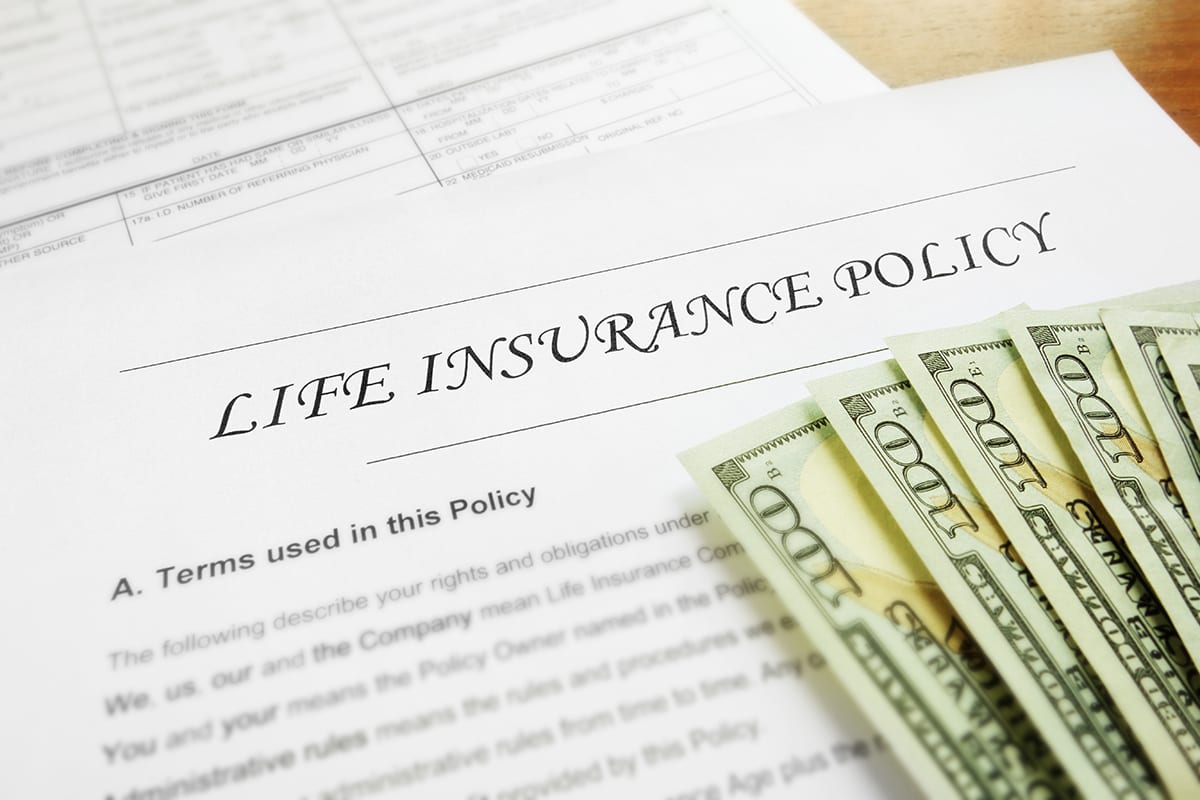Last Updated on March 28, 2025
Life insurance is smart financial protection — especially if you plan on getting married and having children or dependents relying on your income and household contributions. But choosing what type of life insurance you need isn’t so cut and dry. There are several options, including term life vs. whole life insurance.
Should you opt for term life and cut your costs, or should you choose whole life and maximize the potential benefits for your loved ones? When you compare life insurance quotes, the truth is that choosing the right life insurance heavily depends on you and your family’s needs.
Both have their pros and cons. Are you currently deciding what type of life insurance is your best means of protection? Let’s look at both options in-depth.
How Does Term Life Insurance Work?
Term life insurance is a policy that protects you for a set period — a “term,” if you will. In the eyes away during the specific time the people you designate as beneficiaries on your policy will receive a cash payout based on your coverage amount.

Generally, term life insurance policies cover anywhere from 10- to 30-year periods. Until the death of the insured party (or parties), they have no cash value — not to you or your dependents. They’re a “just in case” investment.
As they only become due upon death (and after a significant amount of time), term life insurance policies tend to be much more affordable than whole-life ones. Often, they cost as little as $25 per month, while whole-life policies clock in at hundreds per month or more.
| PROS | CONS |
| Most affordable than whole life | Straightforward and easy-to-understand |
| Can be canceled without losing value | No cash value |
| Straightforward and easy to understand | Doesn’t earn interest |
| Only due upon death |
How Does Whole Life Insurance Work?
Whole life insurance, on the other hand, offers more comprehensive coverage that’s not limited to a certain period. It lasts for the entirety of your lifetime, and it doesn’t require the insured party’s death to provide cash benefits.

With a whole life insurance policy, you get a guaranteed death benefit and a guaranteed cash value. These policies can also earn interest, so the longer you have them, the more valuable they become. They function like investments in this way.
As whole life insurance carries a cash value no matter what, they come with higher premiums than term life policies do — sometimes as much at 10 times the cost. The trade-off is the potentially higher returns when you cash in the policy or pass it on.
| PROS | CONS |
| Lasts your entire lifetime | Higher costs often cause buyers to select too little coverage |
| Earns annual interest | May not be as profitable as other investment vehicles |
| Serves as a long-term investment | More complicated and complex, as its value can change over time |
| Carries a cash value | Higher costs often cause buyers to select too-little coverage |
| Can be cashed in before death | |
| Can help beneficiaries cover estate taxes and after-death costs |
Which One Should You Get?
In comparing term life vs. whole life insurance, both options can help protect you and your loved ones in case the unthinkable happens. However, one may be better suited to your specific financial situation and season in life.

To determine which type of policy is best for you, ask yourself the following questions:
- How much do you need? It’s generally recommended that you purchase a policy that’s at least 10 to 12 times your annual income. If you’re also insuring a spouse, you’ll want to double that to ensure your dependents are adequately protected. This can cover children, home maintenance, and lost income in case you or both of you pass on while your kids are still young. Once you calculate how much you need, get quotes for both term and whole life insurance from several agents.
- What can I afford? Sit down and plot out how much you can afford to spare every month. If you’re on a tight budget, a whole life insurance policy probably isn’t the best choice. These policies can be very expensive and can cost hundreds of dollars per month in most cases. Term life insurance can be a more affordable way to protect your loved ones if you’re stretched thin financially.
- How long do you need it for? Once you have children, you’ll want a policy that at least covers you for the entirety of time your kids are in school. This is usually about 20 years. You can go longer if you want to add extra protection or ensure your spouse is secure in the event you pass on.
- What other investment options do I have? Do you have an employer-sponsored 401K you could contribute to? Are you good with the stock market? A whole life insurance policy can serve as an investment, but it’s not always the most lucrative choice if you have other options. Be sure to explore all your investment choices before opting for a whole-life policy.
- How good are you with money? Do you have lots of debts and financial obligations that you’d leave your loved ones with? Do you expect to be debt-free and in solid financial standing once your kids leave the house? If you fall into the former category, longer-term or more comprehensive life insurance might be the best choice. If you’re in the latter, you can probably afford to choose a shorter-term life policy until your kids are out of school.

The truth is there’s no right or wrong answer when it comes to choosing a life insurance policy. You’ll want to take into account a whole slew of factors, including your finances, your family situation, your debts, and money management habits, and finally your long-term goals. If you’re not sure which is the best option for you, talking to a knowledgeable insurance agent may help.
A Real-life Scenario
So how does life insurance work in practice? Let’s look at a real-life scenario to get a better idea of how you should make your decision. Meet John: he’s determined he has $150 per month he can put toward life insurance. He talks to an insurance agent and learns that he can take out a whole life policy for just that — $150 a month. His other option? A term life policy for 30 years at $25 per month.
In this scenario, the difference is $125 per month or $1,500 per year. The decision John needs to make is this: is that $1,500 better put toward a whole life policy or some other, outside investment? According to Consumer Reports, the average whole-life policy offers an annual rate of return of about 1.5 percent. If John can find investments that deliver higher yields than this, then the choice is obvious.
Keep in mind that even minor differences in returns can matter. An extra $200 per year doesn’t seem like that much, but over two or three decades, it can mean a significant amount of cash in the long run.
Next Steps
If you’re weighing the pros and cons of term life vs. whole life insurance, then be sure to shop around. Insurance policies, as well as the terms and premiums they come with, vary greatly from company to company. Talk to several insurers and get multiple quotes before making a decision. Consulting a financial advisor can also be a smart move if you’re looking to maximize the benefits your life insurance policy can offer you.
Aly J. Yale is a freelance writer and journalist from Houston, covering real estate, mortgage, and finance topics. Her work can be seen in Forbes, The Balance, The Mortgage Reports, MReport, DS News, and The Simple Dollar. She previously served in editorial and production capacities for news organizations such as The Dallas Morning News, NBC, Radio Disney, and PBS.
- Aly Yalehttps://successiblelife.com/author/aly-yale-journalist-freelance-writer/
- Aly Yalehttps://successiblelife.com/author/aly-yale-journalist-freelance-writer/
- Aly Yalehttps://successiblelife.com/author/aly-yale-journalist-freelance-writer/
- Aly Yalehttps://successiblelife.com/author/aly-yale-journalist-freelance-writer/
